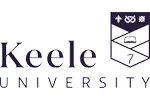We're moving! This site will be relocating to goingto.university in 2026. Please update your bookmarks to the new address.


| The award | How you will study | Study duration | Course start | Domestic course fees | International course fees |
|---|---|---|---|---|---|
| BSc (Hons) | Full-time | 3 years | - | - | - |
Studying Radiography (Diagnostic Imaging) BSc will give you the skills, resilience, and healthcare knowledge to use cutting-edge medical technology to capture diagnostic images. You will develop your clinical abilities for an exciting career in a dynamic healthcare environment providing outstanding patient centred care. Course overview Our Radiography (Diagnostic Imaging) degree at Keele is designed to reflect the current nature of radiography practice and to meet the future demands of the profession. The programme is structured around core themes including radiographic practice and radiographic science, the human body, interpreting images, inter-professional learning, and research.
You will apply your learning through a range of clinical placements to enable you to develop your practical skillset. Diagnostic imaging Medical imaging is used as a major diagnostic tool in the clinical setting including trauma, neurology, oncology, health screening and cardiac events. You will develop clinical experience and technical knowledge by using all modes of medical imaging to take accurate images. Imaging includes ionising radiation-based imaging such as computerised tomography (CT), mammography and nuclear medicine (NM), and non-ionising radiation-based imaging such as magnetic resonance imaging (MRI), and ultrasound (US).
You will study all aspects of radiographic science, anatomy, physiology and pathology and professional patient care both in theory and in practice. You will also learn about the factors that can affect diagnostic images and acquire the skills you need to clinically evaluate the resultant radiographic images. As you progress through your studies you will deepen your knowledge and expertise by looking at more complex imaging methods so that by year three of the programme you will be proficient in all graduate attributes required for registration as a Radiographer by the Health and Care Professions Council (HCPC). Effective communication Most patients require some form of diagnostic imaging as part of their care, so developing effective communication skills is essential in managing these interactions.
You will develop your communication skills from the beginning of the course to enable you to provide excellent patient care in a dignified way that meets the needs of a diverse range of service users. You will benefit from inter-professional education which reflects the teamwork environment in the healthcare sector. This involves working with a variety of students from physiotherapy, rehabilitation and exercise science, medicine, nursing, midwifery, paramedical science and pharmacy. Clinical facilities Gain hands on radiography experience in our excellent facilities that will further aid your learning.
These include a state-of-the-art digital X-ray suite, CT scanner, mock theatre setting with image intensifier, and mobile imaging in wards including simulated patients to hone your practical skills. Your image evaluation skills will be enhanced through a digital hub with high-resolution screens for image interpretation. Acquiring this essential radiography know-how in this safe and simulated clinical environment will increase your confidence and build your key skills before you start your radiography practice in an authentic clinical setting. Clinical placements A large part of the programme involves you gaining clinical experience on placements using the various diagnostic imaging modes.
We have a dedicated placement education team who have extensive knowledge and skills to help source your placements, assist with preparing for them, and to provide ongoing support. It is a mandatory requirement that you will rotate around clinical placement sites and at times seek accommodation/travel to support this rotation. Commuting and seeking accommodation, where necessary, is essential for elements of your clinical placement. Placements take place in a variety of healthcare settings which may include: University Hospitals of the West Midlands Mid Cheshire University Hospitals Shrewsbury and Telford Hospital NHS Trust Robert Jones and Agnes Hunt Orthopaedic Hospital Walsall Healthcare NHS Trust, Royal Wolverhampton NHS Trust.
You may also undertake an elective placement of your choice during years two and three. These give you the opportunity to select a specific area of interest like paediatrics or veterinary medicine. No.3 in the UK for Radiography (Times Good University Guide, 2024) Eligible students can apply for a non-repayable £5,000 NHS grant per academic year Accredited by the Society of Radiographers Approved by the Health and Care Professions Council Top 5 in England for Radiography (Complete University Guide, 2026) For more details, please see the course page on the Keele website.
Contact Keele University to find course entry requirements.
Below are some suggested courses at other providers that you may also be interested in:
Data Science Bachelor of International Liberal Arts
International College of Liberal Arts (iCLA) at Yamanashi Gakuin University
Find out moreConsider a Foundation or Pathway course at Keele University to prepare for your chosen course:
If you do not meet the entry requirements for this course then consider one of these courses from another institution:
There are 182 other courses listed from Keele University. A selection of these are displayed below:
Join the StudyLink email list and never miss a chance to turn your study abroad dreams into reality!

Find out more about studying in the United Kingdom
As an international student you may require a valid visa to study at Keele University. Read more about the requirements in our Guide to the United Kingdom International Student Visa Requirements.